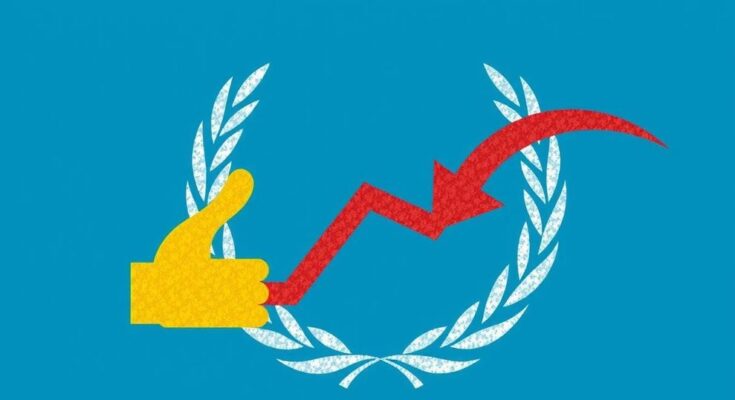The UN’s OCHA warns of a looming humanitarian crisis requiring over $47 billion in aid for 2024, addressing the dire conditions of 190 million people amidst conflicts and climate disasters. With only 43 percent of the current year’s funding appeal met, the organization faces significant operational challenges, particularly in high-need areas like Syria and Yemen. The U.S. remains the largest donor, but political uncertainties raise concerns about future contributions, prompting calls for increased global solidarity to navigate this crisis.
The United Nations Office for the Coordination of Humanitarian Affairs (OCHA) has issued a dire warning regarding the escalating humanitarian crisis due to declining funding and increasing global conflicts and climate-related disasters. The newly appointed humanitarian chief, Tom Fletcher, has highlighted the necessity of prioritizing assistance as the organization seeks to raise over $47 billion to support around 190 million people in urgent need in 2024. Despite this pledge, OCHA faces significant funding shortfalls, with only 43 percent of their $50 billion appeal for the current year having been fulfilled, impacting aid availability in critical regions such as Syria and Yemen.
Fletcher articulated grave concerns about future funding disparities, emphasizing the challenges ahead as conflicts worsen in countries including Gaza, Sudan, and Ukraine. The humanitarian chief has vowed to allocate funds strictly to those facing the most severe crises, noting that the UN’s reach will extend to 32 countries next year. Amidst these challenges, the United States remains the primary donor, having contributed over $10 billion last year, yet the political climate poses risks to ongoing support.
Additionally, Jan Egeland, head of the Norwegian Refugee Council, stressed the potential ramifications should US humanitarian funding be retracted under the upcoming administration. The scale of the appeal is unprecedented, yet it omits approximately 115 million individuals whose needs cannot be adequately met under current circumstances. Fletcher underscored the critical need for “a surge in global solidarity” to address the overstretched international humanitarian system. This year alone has seen a record number of humanitarian workers fatalities, further complicating on-the-ground assistance efforts.
The global humanitarian landscape is increasingly strained by a convergence of factors, including escalating armed conflicts and the environmental impacts of climate change. The OCHA’s call for a significant funding increase is a response to the alarming number of individuals displaced and suffering from starvation and violence across various nations. The humanitarian appeals historically represent the urgent need for comprehensive aid to vulnerable populations, but recurring underfunding has severely compromised their operational capacities. As nations grapple with both domestic and international challenges, the funding landscape remains unpredictable, notably with the anticipation of shifts in US foreign aid policy.
In conclusion, the UN’s OCHA is navigating an unprecedented humanitarian crisis exacerbated by funding deficiencies and rampant global conflicts. With a substantial portion of its financial appeals unmet, the organization emphasizes the urgent necessity for donor nations to bolster their commitments. The repercussions of failing to increase aid would severely impact the millions in need, thereby necessitating a unified global effort to provide critical relief. As the humanitarian landscape continues to evolve, the challenges remind us of our shared responsibilities toward addressing human suffering.
Original Source: www.aljazeera.com




